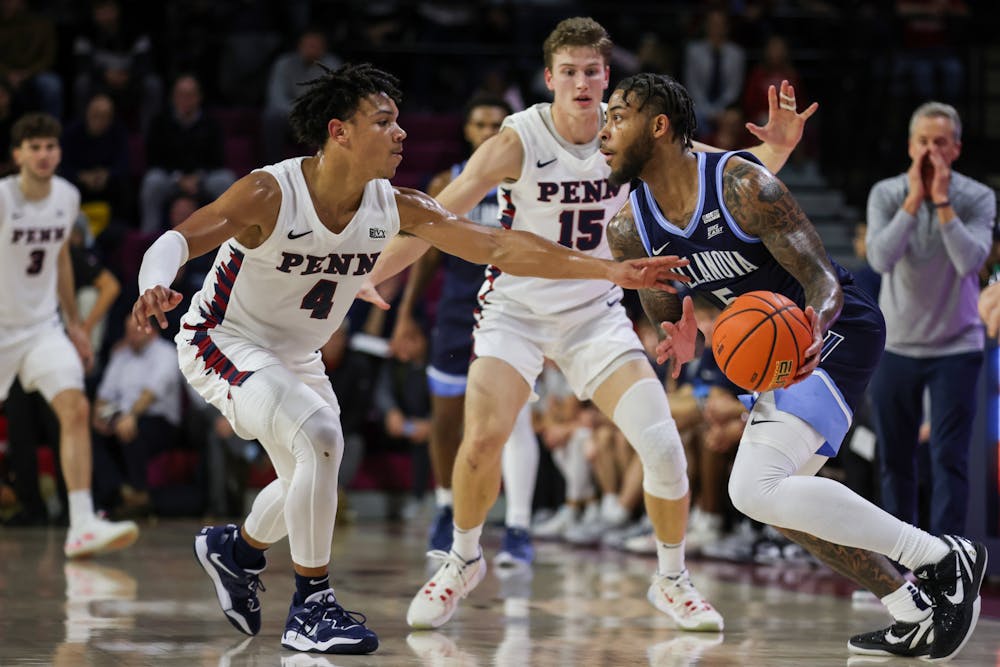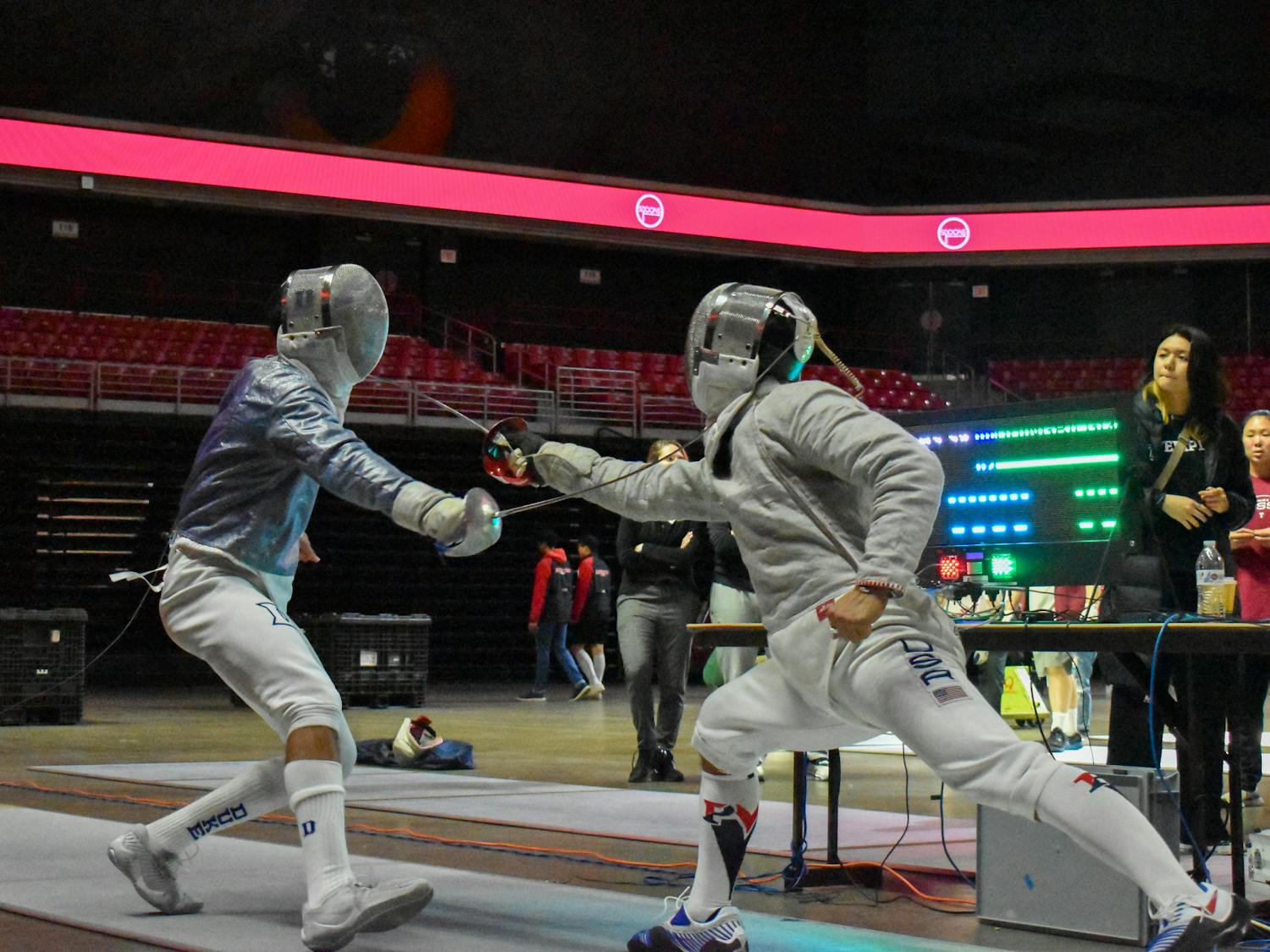It was just a little under a month ago when Penn men's basketball pulled off one of its biggest upsets in recent years, defeating then-No. 21 ranked Villanova 76-72 in the Palestra. While it may have been every man for themselves as the Penn faithful rushed the court, it was actually the 2-3 zone that helped the Quakers earn just its second win against the Wildcats in the last 20 years.
The 2-3 zone defense is a formation where two players play near the top of the key and three others play lower in the defensive end. Two of the lower three push out towards the corners and play on the wing, while the person in the center plays around the basket.
According to coach Steve Donahue, the Quakers implemented the zone to be able to disrupt opposing offenses mid-game.
“Even come [Ivy] League play, I thought we need something to break a team that's in a good rhythm," he said. "Throw the zone at them, give them a different look.”
Another factor, Donahue added, was that the team had a number of younger players taking on bigger roles and they didn’t necessarily have a lot of experience playing together as a unit.
“I knew we’d be very young, and unfortunately defense is usually the last thing to come around,” he said.
Of the 10 players on the team to average over 10 minutes a game, half are freshmen or sophomores. Freshman guard Tyler Perkins in particular has emerged as a dominant force on both sides of the court. He is currently second on the team in points and minutes per game, averaging 16.7 and 31.8 respectively, while leading the team with 18 steals.
“He has very good instincts for where the ball is going," Donahue said. "He’s very aggressive, maybe sometimes a little too aggressive.”
RELATED:
La Salle's overtime buzzer-beater knocks Penn men's basketball to fourth in Big 5 Classic
Penn men's basketball goes 2-1 at Cathedral of College Basketball Classic
Perkins added that he wants to work towards managing his aggressive play style, balancing when to go for steals with the need to stay in position. In the zone defense, Perkins often plays on the wing, where he says he acts like a quarterback.
“I can see the floor on defense, so being on the wing helps you," Perkins said. "You get to see other positions and see the offensive guys rotating and call them out.”
Perkins also emphasized the importance of communication in the 2-3 zone to defend against offensive schemes and guard players cutting to the basket. This can force turnovers and get Penn players in transition, setting up the potential for easier fast-break scoring opportunities.
While the zone has proven effective in certain games, Donahue said he expects to use man-to-man coverage in about 90% of possessions. In man-to-man, each defender takes on one of the opposing players and follows them throughout the defensive possession. In some of the early games, though, like against Villanova, switching to zone seemed like the best idea given the matchups.
“With Villanova, I just thought that given their size and physicality, if we had to go man-to-man with them for 40 minutes, that that would have worn us down without the zone,” Donahue said.
Additionally, the zone defense allowed the team to extend out and take away the opponent's ability to shoot from three-point range. Villanova shot just 9-33 or 27.3% from beyond the arc in Penn’s victory.
With the defense extended, protecting against the three ball, and a big physical team like Villanova, the role of the man that patrols around the net becomes increasingly important. In the game against Villanova, that role was played mostly by junior forward/center Nick Spinoso and sophomore forward Johnnie Walter.
“Nick, being one of our veteran guys, has improved in all aspects of his game. I think defense is one of them,” said Donahue. He added that Walter has performed well in the minutes he has been given and he expects him to have a larger role going forward.
Despite the success of the zone defense in big games like the Villanova upset, the defense overall has not been a dominant strength for the Quakers thus far in the season. They currently rank fourth in the Ivy League, conceding 70.9 points per game. Donahue and company will continue to apply their different schemes as they face a number of tough challenges throughout December, including No. 16 Kentucky and No. 3 Houston, leading up to the Ivy slate that begins next month.









